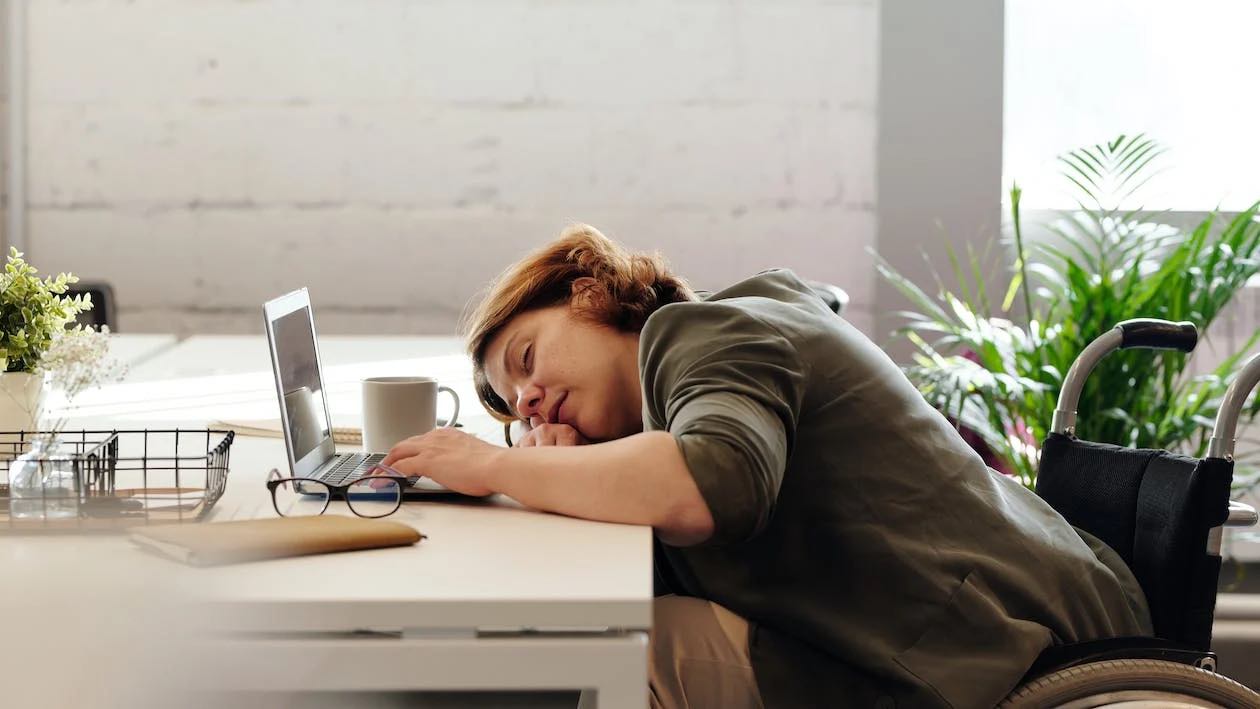Narcolepsy is a long-term brain disorder which is rare in nature. Narcolepsy causes a person to fall asleep suddenly at any given time, including inappropriate times.
Symptoms of Narcolepsy
The brain of a person with Narcolepsy is unable to function correctly when it comes to regulating sleeping and waking patterns.
As a result the symptoms of Narcolepsy include:
Excessive daytime sleepiness – in most cases, it is true that this symptom is the initial sign of narcolepsy. Unfortunately, it is obvious that excessive daytime sleepiness can have a huge impact on a persons daily life and general lifestyle.
Sleep Attacks – a sleep attack is where the person affected can fall asleep suddenly and without any warning whatsoever. Sleep Attacks can occur at any time of day or night and must be controlled. The length of an attack varies widely between cases. Some people only have what is known as a “micro sleep” which tend to only last a few seconds. Others may find themselves falling asleep for several minutes or longer.
Sleep Paralysis – some individuals may experience sleep paralysis as part of their battle which narcolepsy. Sleep paralysis is a temporary inability to speak or move whilst in a sleeping state, but where you feel awake. Usually it occurs as you wake up or fall asleep. Although sleep paralysis is actually unharmful, many people report feeling terrified when it has happened to them.
Cataplexy – it is common for those who have narcolepsy to experience cataplexy also. Cataplexy is a temporary and sudden muscle weakness or a loss of muscular control. Cataplexy is usually triggered by an emotion, often laughter or suspire can bring it on, as can anger. Some people will only experience cataplexy once or twice annually, whilst others may face it everyday, serval times a day. Typical symptoms of cataplexy include; the head slumping, legs collapsing, the jaw dropping, slurred speech and double vision.
Other symptoms include:
Headaches
Restless sleep
Hallucinations – seeing or hearing things that are not corporeal (actually there). This is especially common when falling asleep or waking up.
Problems with memory
Depression – those who face cataplexy on top of their narcolepsy may begin to isolate themselves in an attempt to control the attacks.
If your narcolepsy is causing you to feel depressed or low, consider speaking to your GP. You can also get in touch with Narcolepsy UK, which is a support group to help those with narcolepsy in their daily lives as well as in their struggles.
Causes of Narcolepsy
It is thought by medical professionals that cases of narcolepsy are brought on by a lack of chemical hypocretin (known as orexin) in the brain. This chemical regulates sleep.
This is further thought to be a result of the immune system attacking parts of the brain which produce hypocretin by mistake. In saying this, a lack of hypocretin is not the direct cause in all cases of narcolepsy.
Possible triggers
There are in fact a number of reasons which may increase a person’s risk of getting narcolepsy. These include things like:
A genetic fault which is inherited
Hormonal changes which arise around puberty or menopause.
Extreme psychological stress
a change that occurs suddenly in a sleeping pattern
an infection, such a streptococcal infection
having Pandemrix – a type of flu vaccine.
Treatment for Narcolepsy
Unfortunately, there is no specific cure for narcolepsy. However, there are effective ways to manage the symptoms so that they have minimal impact on your daily life.
Good sleeping habits
Set out by professionals, there are some steps that you can take to reduce the effects of excessive daytime sleepiness, which in turn can make it easier to sleep at night time. These include:
taking brief but frequent naps – if you space them evenly throughout the day, this should help correct your pattern to some extent.
Aiming to stick to a strict bedtime routine – wherever possible, aim to sleep and wake up at the same time.
Really relax before going to sleep – turn off electronic devices, have a bath etc.
Avoiding caffeine and alcohol before going to bed
Quit smoking if you are a smoker
Avoid eating large, heavy meals before going to bed
Medication
There are a number of different medications which are used to treat symptoms of narcolepsy, however they are not all licensed directly for narcolepsy and their effectiveness is often disputed by medical professionals.
Your GP may chose to prescribe you a stimulant, such as modafinil, methylphenidate or dexamphetamine. These medications can stimulate your central nervous systems, which in turn can keep you awake during the day.
You may also be given Antidepressants to treat the common symptoms associated with narcolepsy, such as cataplexy, hallucinations and sleep paralysis.
You may be given Sodium Oxybate, which is a liquid medicine that you are instructed to drink at night in two doses – first when you get into bed, and second at least 2 and a half hours later, you may need an alarm to make sure you take it at the right time. The aim of sodium oxybate is to improve cataplexy and help you fall asleep naturally at night. However, the NHS does not yet fund this medication.
If you are wanting any help in treating this condition, contact us today.

